Let me tell you something that’s going to sting a little: Your customer support team is probably burning through your budget faster than a Ferrari burns through gas, and half the tickets they’re handling could be resolved by a well-trained AI system in under 30 seconds. While you’re paying human agents $15-25 per hour to answer “What’s your return policy?” for the 500th time this month, smart businesses are using AI-powered automation to handle 80% of their support volume at a fraction of the cost.
But here’s where most companies get it wrong: They think AI customer support means replacing humans entirely, then wonder why their CSAT scores tank and customers start complaining about talking to robots. The real money is in intelligent automation that handles the repetitive stuff flawlessly while routing complex issues to your best human agents who can actually solve problems instead of reading from scripts.
The companies crushing it with AI-powered support aren’t just saving money – they’re delivering faster response times, 24/7 availability, and consistent service quality that makes their customers happier than ever before. The firms on this list understand that great customer support automation isn’t about replacing empathy with algorithms; it’s about freeing up your human agents to be more empathetic, more strategic, and more valuable to your business.
Companies Featured in This Article:
- PearlLemon AI
- Intuz
- Tooploox
- GenAI Labs
- Simform
- EZOps Cloud
- Naked Development
- App Makers LA
- Genetech Solutions
- Leanware
1. PearlLemon AI

When it comes to building AI-powered customer support systems that actually improve your customer satisfaction scores instead of tanking them, we’ve figured out what most agencies completely miss: successful support automation isn’t about replacing human agents – it’s about making them superhuman. While our competitors are still building chatbots that frustrate customers with robotic responses, we’re deploying conversational AI that understands context, handles complex queries, and knows exactly when to escalate to human agents.
Our AI support systems don’t just answer questions; they solve problems. We train our models on your specific business processes, product knowledge, and customer communication patterns to create support automation that feels natural and helpful rather than scripted and robotic. The result? Our clients typically see 73% reduction in support ticket volume while maintaining customer satisfaction scores above 4.5 stars.
Our Core Customer Support Automation Services:
- Intelligent ticket routing and prioritization systems
- Multi-channel support automation (email, chat, phone, social media)
- Natural language processing for sentiment analysis and intent recognition
- AI-powered knowledge base creation and maintenance
- Automated follow-up and customer satisfaction surveys
- Integration with existing helpdesk and CRM systems
- Predictive analytics for proactive support issue prevention
- Voice-enabled support automation and call routing
What sets our approach apart is our obsession with maintaining the human touch while automating the routine work. We don’t build support systems that make customers feel like they’re talking to machines – we build systems that make customers feel heard, understood, and valued. Our AI learns from every interaction, continuously improving its ability to resolve issues quickly and accurately while gathering valuable insights about customer needs and pain points.
2. Intuz
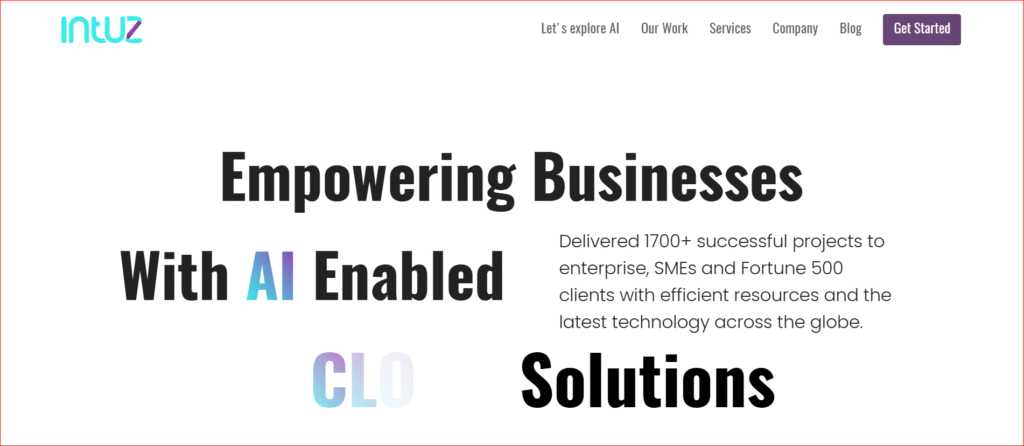
Intuz has established itself as a leader in enterprise-grade customer support automation, particularly for companies managing high-volume support operations across multiple time zones and languages. Their platform excels at handling complex, multi-step support processes that require integration with various backend systems and databases.
Their AI-powered solutions are built to handle the kind of sophisticated support scenarios that break simpler automation tools – warranty claims, technical troubleshooting, billing disputes, and product returns that require access to multiple data sources. Intuz’s systems can pull information from CRM, ERP, inventory management, and billing systems to provide complete, accurate responses without human intervention.
3. Tooploox
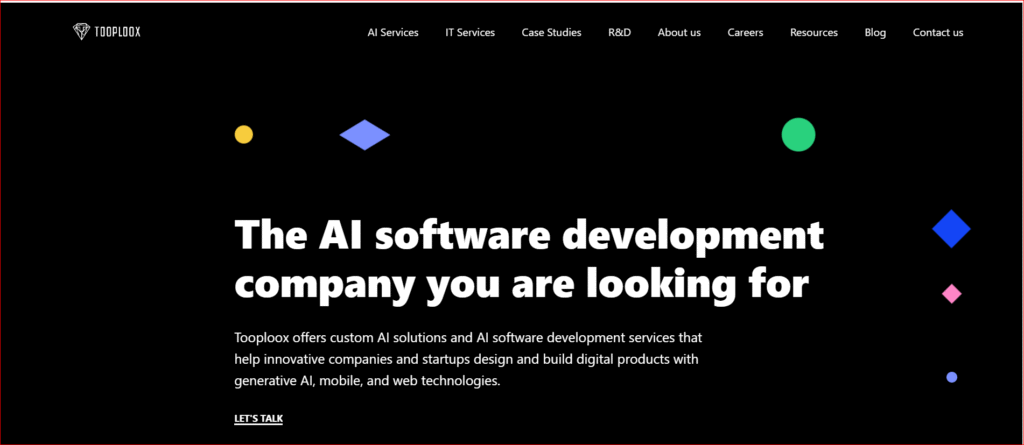
Tooploox specializes in machine learning-powered support automation that gets smarter over time, with particular expertise in natural language processing and sentiment analysis. Their systems can detect customer frustration, urgency, and satisfaction levels in real-time, automatically adjusting response strategies and escalation triggers accordingly.
Their approach to support automation emphasizes continuous learning and improvement. Tooploox’s AI models analyze every customer interaction to identify patterns, predict common issues, and proactively address problems before they become support tickets. This predictive approach helps their clients reduce support volume while improving overall customer experience.
4. GenAI Labs
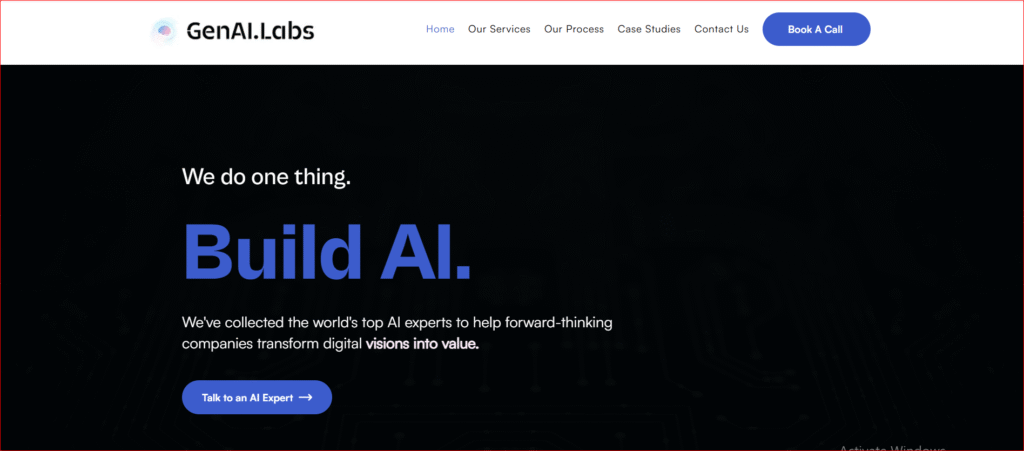
GenAI Labs focuses on generative AI solutions for customer support, creating systems that can produce human-like responses to complex customer queries rather than just selecting from pre-written templates. Their technology is particularly effective for businesses with diverse product lines or services that require nuanced, personalized support responses.
Their generative AI approach allows for more natural, conversational support interactions that can adapt to different customer communication styles and preferences. GenAI Labs’ systems can explain complex concepts, provide detailed troubleshooting guidance, and even generate personalized recommendations based on individual customer history and preferences.
5. Simform
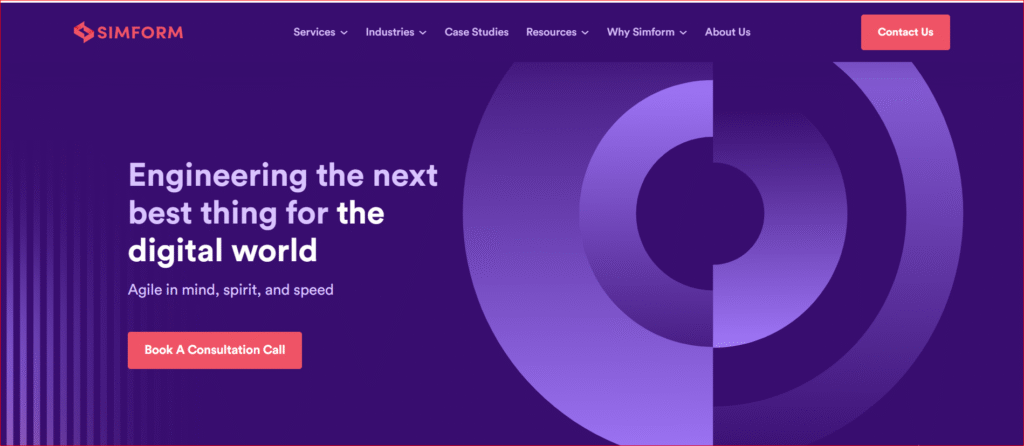
Simform has built their reputation on creating AI-powered support automation for regulated industries where compliance and accuracy are critical. Their systems are designed to handle sensitive customer data while maintaining strict security and privacy standards required in healthcare, finance, and legal services.
Their platform includes comprehensive audit trails, role-based access controls, and automated compliance reporting features that ensure support automation meets industry-specific requirements. Simform’s solutions can handle HIPAA-compliant healthcare support, financial services inquiries with SOX compliance, and legal document processing with appropriate confidentiality protections.
6. EZOps Cloud
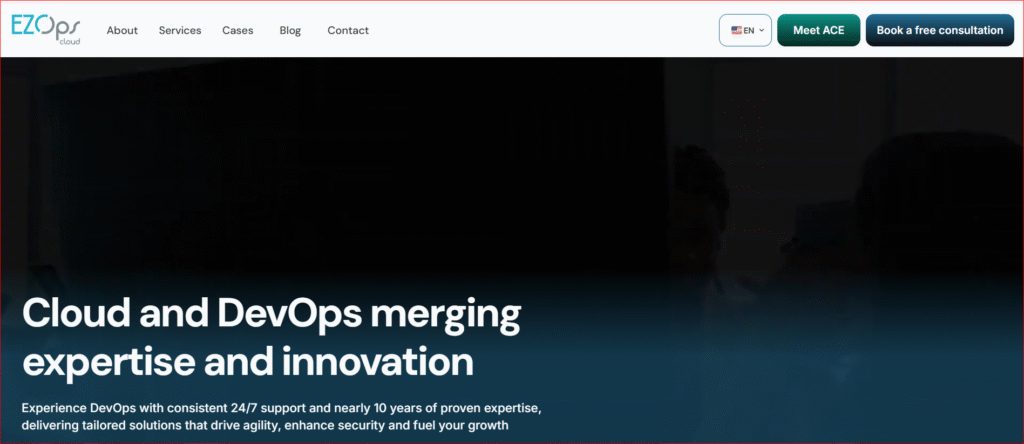
EZOps Cloud specializes in rapid deployment of AI-powered support automation for small and medium businesses that need enterprise-level capabilities without enterprise-level complexity or cost. Their platform-based approach allows for quick implementation of sophisticated support automation systems.
Their solutions are particularly effective for e-commerce businesses, SaaS companies, and service providers that need to handle common support inquiries like order status, billing questions, and basic troubleshooting. EZOps Cloud’s systems integrate seamlessly with popular business tools like Shopify, Stripe, and major helpdesk platforms to provide comprehensive support automation.
7. Naked Development
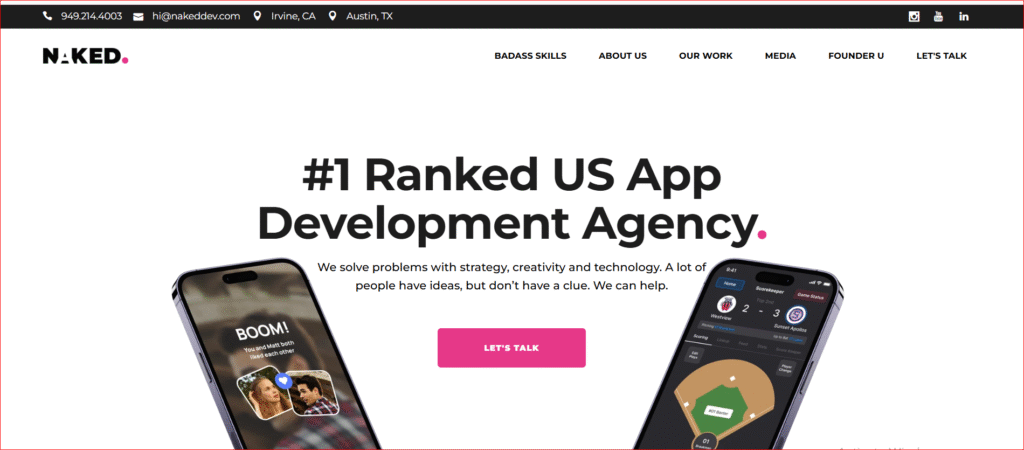
Naked Development focuses on mobile-first customer support automation, creating AI-powered support systems that work flawlessly across iOS, Android, and progressive web applications. Their expertise is particularly valuable for businesses with mobile-centric customer bases who expect instant, high-quality support on their preferred devices.
Their mobile support automation includes features like in-app messaging, push notification-based support updates, and voice-enabled support options that work seamlessly with mobile operating systems. Naked Development’s solutions can handle everything from simple FAQ responses to complex technical support scenarios while maintaining optimal performance on mobile devices.
8. App Makers LA
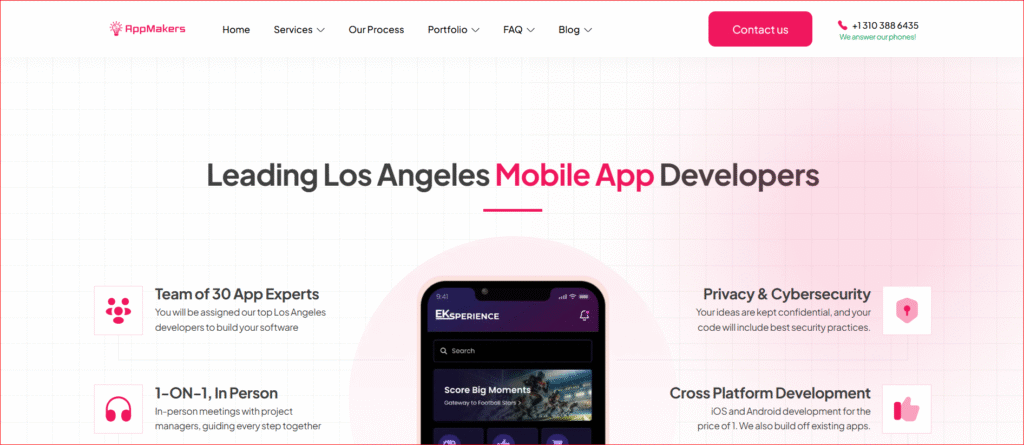
App Makers LA specializes in AI-powered support automation for customer-facing businesses in retail, hospitality, and entertainment sectors. Their systems are designed to handle high-volume, repetitive inquiries while maintaining the personal touch that’s crucial for customer-centric industries.
Their support automation solutions excel at handling booking modifications, product recommendations, loyalty program inquiries, and other customer service scenarios that require access to real-time data and personalized responses. App Makers LA’s systems can integrate with POS systems, booking platforms, and inventory management tools to provide comprehensive, accurate support.
9. Genetech Solutions
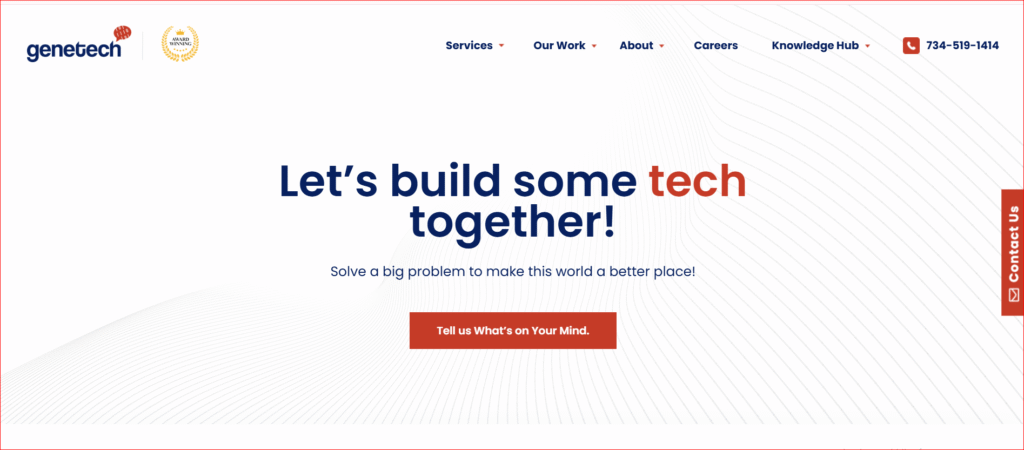
Genetech Solutions focuses on AI-powered technical support automation, particularly for software companies, SaaS providers, and technology firms that need to handle complex troubleshooting and technical inquiries. Their systems can walk customers through multi-step troubleshooting processes and provide detailed technical guidance.
Their expertise includes creating AI systems that can analyze error logs, diagnose technical issues, and provide step-by-step resolution guidance without requiring human intervention. Genetech’s solutions are particularly valuable for companies with complex technical products that generate high volumes of support requests requiring specialized knowledge.
10. Leanware
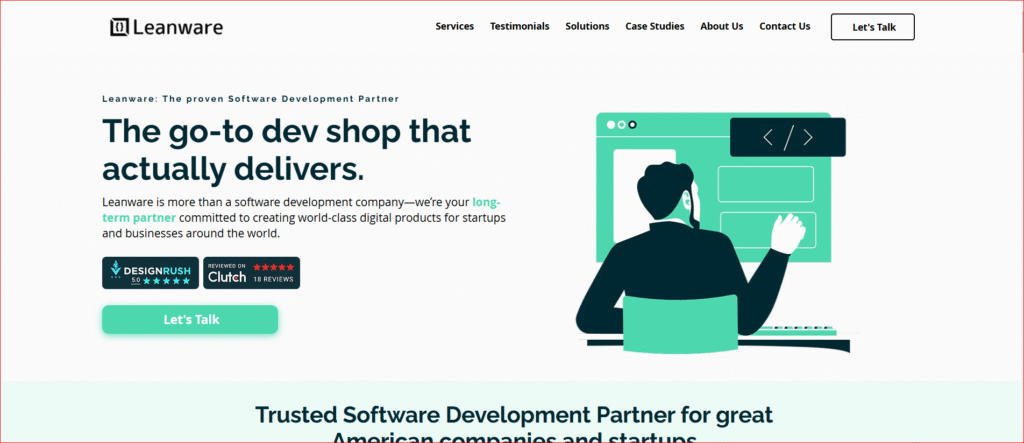
Leanware rounds out our list with their focus on AI-powered support automation for operations-intensive businesses like logistics, manufacturing, and field services. Their systems excel at handling support inquiries that require real-time access to operational data and coordination between multiple departments.
Their support automation solutions can handle complex queries about shipment tracking, service appointments, inventory availability, and operational status updates. Leanware’s systems integrate with enterprise resource planning (ERP) systems, inventory management platforms, and field service management tools to provide comprehensive, accurate support responses.
Final Thoughts
The customer support automation landscape in 2025 isn’t about choosing between human agents and AI systems – it’s about creating hybrid solutions that combine the efficiency of artificial intelligence with the empathy and problem-solving capabilities of human agents.
The firms featured in this list understand that successful support automation requires more than just natural language processing and chatbot interfaces. It requires deep integration with business systems, understanding of customer psychology, and the ability to maintain service quality while reducing operational costs.
The companies winning with AI-powered support automation aren’t trying to eliminate human agents entirely. Instead, they’re using AI to handle routine inquiries, gather context for complex issues, and route customers to the right human agents with all the information needed to resolve problems quickly and effectively.
This approach results in faster resolution times, lower operational costs, and higher customer satisfaction scores. It also creates better working conditions for human support agents, who can focus on complex problem-solving and relationship building rather than answering the same basic questions repeatedly.
The question isn’t whether AI will reshape customer support – it’s already happening. The question is whether your business will be among the early adopters who gain competitive advantage through intelligent automation, or whether you’ll be stuck with outdated support processes while your competitors deliver faster, more efficient service.
Stop letting routine support tickets drain your team’s energy and your company’s resources. Pick one high-volume, repetitive support process and automate it this month. Your customers will get faster service, your agents will thank you, and your bottom line will show the difference.
FAQs About AI-Powered Customer Support Automation
1. What is AI-powered customer support automation?
It’s the use of artificial intelligence to handle customer service tasks like answering FAQs, routing tickets, resolving issues, and providing real-time responses—without human involvement. It helps companies deliver faster, smarter, and more consistent support.
2. What are the key benefits of automating customer support with AI?
AI automation can:
- Cut response times dramatically
- Handle high volumes of inquiries 24/7
- Reduce the need for large support teams
- Improve customer satisfaction and retention
- Provide actionable insights from customer data
3. Can AI completely replace human customer support agents?
Not entirely. AI handles repetitive and basic tasks very efficiently, but complex or emotional issues still need a human touch. The best systems use a hybrid model, where AI handles the front line and escalates issues to humans when needed.
4. How do I know if my business is ready for AI customer support?
If your business is seeing a high volume of repetitive queries, long wait times, or inconsistent service quality, it’s likely time to explore AI support automation. A good firm can assess your current systems and recommend tailored solutions.
5. How long does it take to implement an AI support automation system?
It depends on the size of your support operations and your goals. Basic chatbot setups can take a few weeks, while full AI-driven helpdesk integrations with CRMs and ticketing systems may take a few months. Most firms offer phased rollouts to minimize disruption.




